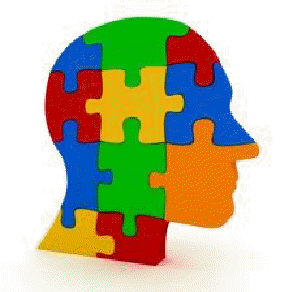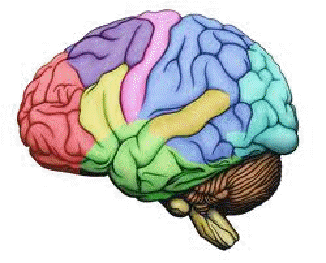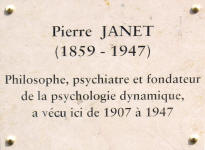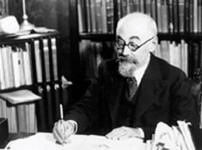A non-profit making organisation providing training in working with trauma at affordable prices.
Trauma Training in Scotland is run by The Trauma Therapy Trust – Charity No SC042686

A non-profit-making organisation providing training in working with trauma at affordable prices
A non-profit making organisation providing training in working with trauma at affordable prices.
Trauma Training in Scotland is run by The Trauma Therapy Trust – Charity No SC042686
This organisation has grown from a small group of therapists interested in improving access to the latest developments in treating the psychological consequences of traumatic experiences. Most of us initially trained in Eye Movement Desensitization and Reprocessing (EMDR) and Sensorimotor Psychotherapy (SP). We are committed to providing advanced techniques for the use of EMDR practitioners and introducing other therapeutic modalities which will improve clinical outcomes in complex trauma disorders. We are seeking to make such trainings as cheap as possible and to provide opportunities for therapists working in voluntary organisations to access trainings at reduced rates. The organisers do not make any money from this venture. Any profits are used for further educational events.
Trauma Training in Scotland is a membership organisation. Membership is open to anyone working in Scotland with clients/patients who have experienced trauma. To become a member please complete an application form and email it to traumatraininginscotland@gmail.com
Please see our privacy policy on use of member data.
Trauma Training in Scotland is run by The Trauma Therapy Trust – Charity No SC042686
 People who have been severely traumatised in childhood often present in adulthood with difficult-to-treat psychiatric disorders. The emotional states resulting from early trauma are seen as dysregulated, not readily amenable to soothing by the sufferer or those around him or her, and they may present as depression or anxiety or complex posttraumatic stress disorder (complex PTSD). The efforts to restore a regulated, soothed, comforted, emotional state may include deliberate self-harm, substance abuse, binge eating and compulsive behaviours: because these are often harmful they are referred to as dysfunctional behaviours. Sufferers will attract many different diagnoses, especially if dissociation has been one of the involuntary survival strategies, and they may be included in any one of many different treatment programmes aimed at symptom reduction and stabilisation. Often there will be no acknowledgement of the origins of the disorder in childhood trauma for fear of further destabilisation. This is therefore a group of clients/patients for whom it is difficult to access a coherent service provision. Where the trauma has arisen in the early attachment experiences of the person (Lyons-Ruth et al 2006) there may even be no obvious history of abuse: one of our aims is to increase awareness and identification of these clinical presentations.
People who have been severely traumatised in childhood often present in adulthood with difficult-to-treat psychiatric disorders. The emotional states resulting from early trauma are seen as dysregulated, not readily amenable to soothing by the sufferer or those around him or her, and they may present as depression or anxiety or complex posttraumatic stress disorder (complex PTSD). The efforts to restore a regulated, soothed, comforted, emotional state may include deliberate self-harm, substance abuse, binge eating and compulsive behaviours: because these are often harmful they are referred to as dysfunctional behaviours. Sufferers will attract many different diagnoses, especially if dissociation has been one of the involuntary survival strategies, and they may be included in any one of many different treatment programmes aimed at symptom reduction and stabilisation. Often there will be no acknowledgement of the origins of the disorder in childhood trauma for fear of further destabilisation. This is therefore a group of clients/patients for whom it is difficult to access a coherent service provision. Where the trauma has arisen in the early attachment experiences of the person (Lyons-Ruth et al 2006) there may even be no obvious history of abuse: one of our aims is to increase awareness and identification of these clinical presentations.
 Those with the most severe complex trauma disorders are those who experienced severe emotional abuse or neglect in their early attachment relationships and then had the damage compounded by physical or sexual abuse. When there is nobody to turn to for help dissociation from the pain and isolation is the only survival strategy available. This may come at the cost of changes in the structure of the developing brain: there is, in some severe dissociative disorders, evidence of significant reductions in the volume of structures such as the hippocampus and the amygdala. Those who have structural brain changes as a result of abuse and neglect from birth onwards are often invalidated by being offered 10 sessions of CBT for depression or anxiety – symptoms treated in isolation from their causes. A gastroenterologist who treated nausea with medication whether it arose from indigestion or gastric cancer would rightly be not taken seriously; yet psychiatry continues to see a similar process as an evidence-based, rational approach.
Those with the most severe complex trauma disorders are those who experienced severe emotional abuse or neglect in their early attachment relationships and then had the damage compounded by physical or sexual abuse. When there is nobody to turn to for help dissociation from the pain and isolation is the only survival strategy available. This may come at the cost of changes in the structure of the developing brain: there is, in some severe dissociative disorders, evidence of significant reductions in the volume of structures such as the hippocampus and the amygdala. Those who have structural brain changes as a result of abuse and neglect from birth onwards are often invalidated by being offered 10 sessions of CBT for depression or anxiety – symptoms treated in isolation from their causes. A gastroenterologist who treated nausea with medication whether it arose from indigestion or gastric cancer would rightly be not taken seriously; yet psychiatry continues to see a similar process as an evidence-based, rational approach.
 Trauma therapy since the time of Pierre Janet (who published in the late 19th and early 20th centuries) has been in three stages: safety and stabilization; (re)processing of trauma memories; personal integration. To focus only on stage 1 is not trauma therapy. To go too rapidly to stage 2 can increase dysregulation and the associated dysfunctional behaviours. Trauma therapy needs to be multi-modal and adaptable. Sometimes people venture briefly into stage 2, return to stage 1 with more awareness of what is needed before returning to stage 2, and so on. Commitment to safety and to the pursuit of health allows creativity and adaptability for what is often a long-term treatment. Frequently people feel more distressed initially as they connect, with more awareness, with the origins of their distress. It is important that it is appreciated that this is part of the healing process and that techniques are available to the client/patient for regulating the pain.
Trauma therapy since the time of Pierre Janet (who published in the late 19th and early 20th centuries) has been in three stages: safety and stabilization; (re)processing of trauma memories; personal integration. To focus only on stage 1 is not trauma therapy. To go too rapidly to stage 2 can increase dysregulation and the associated dysfunctional behaviours. Trauma therapy needs to be multi-modal and adaptable. Sometimes people venture briefly into stage 2, return to stage 1 with more awareness of what is needed before returning to stage 2, and so on. Commitment to safety and to the pursuit of health allows creativity and adaptability for what is often a long-term treatment. Frequently people feel more distressed initially as they connect, with more awareness, with the origins of their distress. It is important that it is appreciated that this is part of the healing process and that techniques are available to the client/patient for regulating the pain.

Treating Anger, Resentment and Revenge from a Trauma Perspective: A new EMDR Anger Protocol
Facilitator: Herman Veerbeek
Date: Saturday 30th November 2024 – Full day event
Venue: Healing for the Heart, The Europa Building, 450 Argyle St, Glasgow G2 4LH
Early Bird Cost = £100.00 (payment before 11/10/24) – Cost thereafter = £120.00
EMDR therapists practicing in health and forensic fields are frequently confronted with anger problems; some clients may suffer from suppressed, inaccessible anger, others may present with an intimidating, aggressive attitude, as seen in some veterans, clients in a high conflict divorce and some complex trauma clients. Invariably, the externalizing attitude of a client is seen as an annoying process-disturbing phenomenon that can severely block regular EMDR therapy, leaving everybody powerless and frustrated. This workshop explores a new EMDR-protocol that takes anger as starting point in therapy and sees it as an opportunity to heal, making use of (1) EMDR: the Adaptive Information Processing model of Francine Shapiro – which encompasses a trauma perspective on anger – and Bilateral Stimulation, (2) a sensorimotor approach (Pat Ogden) and (3) Imagery Rescripting (Young).
In the workshop extensive video footage, demos and role-playing, will be used and theoretical underpinnings of the protocol explored. Participants will become familiar with the essential parts of the protocol by role-playing in break-outrooms in couples, alternating being in the role of client and therapist. In the role of client participants are able to experience the effect of the protocol themselves.
Learning Objectives
Mastering when to use and how to apply the anger protocol, also as cognitive interweave;
Analyzing and understanding anger-driven urges and aggressive, externalizing behavior from a trauma perspective;
Increasing awareness and recognizing your own fear and blocking views in helping aggressive clients and finding ways to overcome that;
Learning how to address the clients’ aggression and externalization with EMDR therapy and use the expression of anger in healing from trauma;
Learn strategies to work with clients with suppressed or explosive anger;
Learn strategies to keep an optimal safety for therapist and client.
About the trainer: Herman Veerbeek is a Clinical Psychologist and EMDR Consultant, from the Netherlands. He has treated patients with long sentences, severe personality disorders and PTSD-symptoms in the Scheveningen prison for 13 years and currently treats patients at the outpatient Forensic Psychiatric Centre ‘De Waag’ in the Netherlands. He developed the EMDR Directed Anger Protocol, the Directed Anger Questionnaire and he specialises in trauma focused offender treatment. He presents workshops in the Netherlands, England, Germany, and webinars for Australia.
FOR FURTHER DETAILS OR TO BOOK A PLACE PLEASE CONTACT: traumatraininginscotland@gmail.com
Please note that due to the part-time administration of this small organisation we may not get back to you immediately, however we will be in touch as soon as possible.